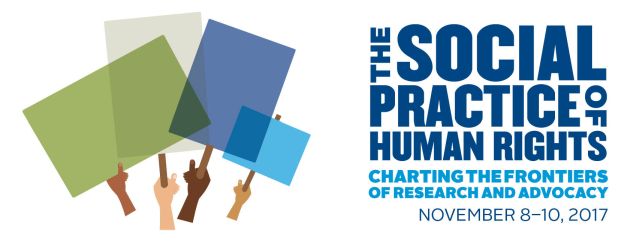
Start Date
11-8-2017 1:30 PM
Keywords
Partnership strategies, Cross-disciplinary communication, Human rights practice
Abstract
Academics are increasingly interested in getting out of their classrooms and labs to contribute their knowledge, expertise, and resources to help communities develop evidence-based policies. In addition to post-election initiatives such as the March for Science and 314 Action, many academics are joining “without borders”-type programs and organizations that connect academics with opportunities to volunteer their time and talents for “social good.”
One of the longest-running of these is On-call Scientists, an initiative of the American Association for the Advancement of Science (AAAS) that connects human rights organizations with pro bono scientists across all fields — life, physical, behavioral, and social sciences, as well as engineering and health — who provide the organizations with needed expertise. Since its launch in 2008, the project has matched more than 400 scientists on 140 human rights projects in the United States and around the world.
AAAS recently conducted an evaluation of On-call Scientists, which involved guided interviews with volunteers and human rights project directors. In these interviews, we asked both sides of the partnerships how they established project methods across multiple disciplines and areas of expertise, how they resolved communication challenges that came up, and what types of long-term impacts the cross-disciplinary collaborations created. This evaluation has increased our understanding of how academics working with practitioners and community members can build trust and shared understandings.
This presentation at the Social Practice of Human Rights conference provides examples of collaborative projects that have been fostered through On-call Scientists; describes the benefits of these collaborations to human rights practitioners and volunteers; outlines challenges that arise and suggestions for overcoming them; and makes recommendations for academic institutions and organizations that may be considering developing a human rights pro bono program similar to On-call Scientists.
Included in
Human Rights Law Commons, Life Sciences Commons, Medicine and Health Sciences Commons, Physical Sciences and Mathematics Commons, Social and Behavioral Sciences Commons
Building Academic/Practitioner Teams for Human Rights Projects: Examples, Lessons Learned, and Pitfalls to Avoid
Academics are increasingly interested in getting out of their classrooms and labs to contribute their knowledge, expertise, and resources to help communities develop evidence-based policies. In addition to post-election initiatives such as the March for Science and 314 Action, many academics are joining “without borders”-type programs and organizations that connect academics with opportunities to volunteer their time and talents for “social good.”
One of the longest-running of these is On-call Scientists, an initiative of the American Association for the Advancement of Science (AAAS) that connects human rights organizations with pro bono scientists across all fields — life, physical, behavioral, and social sciences, as well as engineering and health — who provide the organizations with needed expertise. Since its launch in 2008, the project has matched more than 400 scientists on 140 human rights projects in the United States and around the world.
AAAS recently conducted an evaluation of On-call Scientists, which involved guided interviews with volunteers and human rights project directors. In these interviews, we asked both sides of the partnerships how they established project methods across multiple disciplines and areas of expertise, how they resolved communication challenges that came up, and what types of long-term impacts the cross-disciplinary collaborations created. This evaluation has increased our understanding of how academics working with practitioners and community members can build trust and shared understandings.
This presentation at the Social Practice of Human Rights conference provides examples of collaborative projects that have been fostered through On-call Scientists; describes the benefits of these collaborations to human rights practitioners and volunteers; outlines challenges that arise and suggestions for overcoming them; and makes recommendations for academic institutions and organizations that may be considering developing a human rights pro bono program similar to On-call Scientists.


